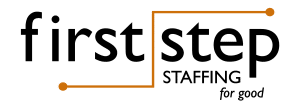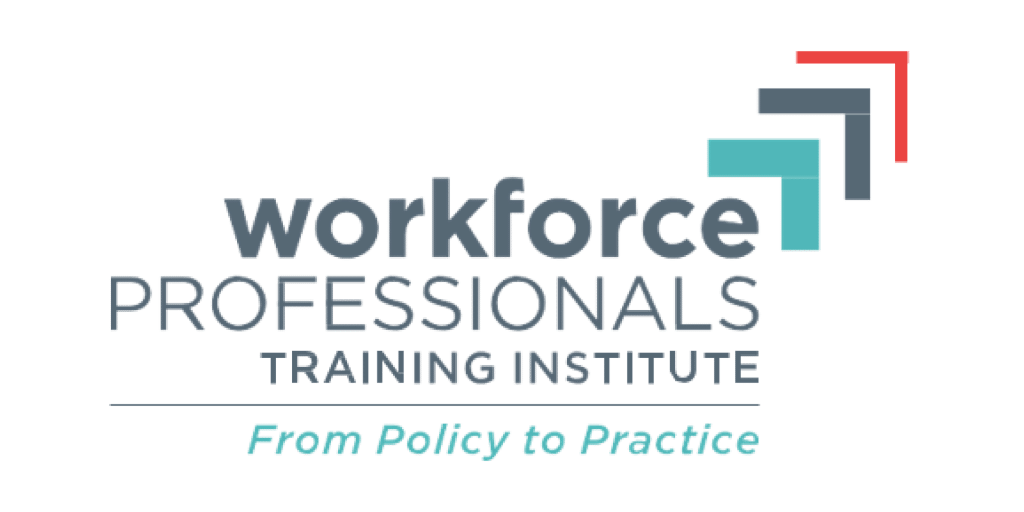The Sorenson Impact Foundation is proud to announce the recipients of the 2020 Equitable & Resilient Recovery Grant program. Last fall, in light of the health, economic and social crises facing the U.S., the Sorenson Impact Foundation launched a grant program to support innovative, systemic solutions for a more equitable and resilient future. We received over 400 proposals across the categories of workforce development, entrepreneurship, and access to capital and are excited to share the five organizations that we selected to partner with in 2021 and beyond as we look towards a brighter future together. Below are brief descriptions of each organization and their projects; and we’ll be providing more detailed overviews of their work in the coming weeks. Of course, please reach out if you would like to learn more about any of these organizations or projects.

First Step Staffing empowers individuals with barriers to employment with employment, income opportunities and support so that they can take the first step towards a path out of poverty and homelessness. Since 2007, First Step has employed over 15,000 individuals and paid more than $100M in earned wages. In 2020, First Step received the “Extra Mile” award from the U.S. Interagency Council on Homelessness for its “income first” approach to ending homelessness. Now the largest nonprofit staffing agency in the U.S. with operations in six states (GA, TN, FL, PA, NJ and CA), First Step is poised to launch its next phase of growth. Support from the Sorenson Impact Foundation allows First Step to expand its impact – connecting thousands more men and women experiencing homelessness, veterans and returning citizens – with employment and supportive services. Over the next five years, First Step anticipates launching in new markets and bringing services like job coaching, transportation and housing placement assistance, to each city as well.

Common Future is building a future where people, no matter their race or class, have power, choice, and ownership over the economy. With the Sorenson Impact Foundation, Common Future will invest in the capacity and impact of its growing Capital Strategies team. In 2021, Common Future plans to engage in a series of pilots — including character-based lending, revenue-based finance, and impact investing — that will chart a strategy forward to shift capital toward and build power with BIPOC communities.

Founded in 2004, Workforce Professionals Training Institute (WPTI) is the leading provider of capacity-building services for New York City’s workforce development organizations and practitioners. Using a three-tiered approach encompassing learning, consulting, and systems building, WPTI looks to strengthen all levels of the workforce development system to help job seekers generate pathways out of poverty and into quality jobs and careers. WPTI has trained over 10,000 workforce practitioners from over 900 organizations that collectively serve over 500,000 jobseekers. Annually, we serve over 1,000 individuals and 250 organizations. WPTI is seizing the opportunity presented with the COVID-19 Pandemic’s lasting impact and the new digital economy to develop and strategically advance the deployment of a digital strategy designed for scalability, ease of virtual access, reskilling and upskilling workforce practitioners and bringing partners and the workforce development community together to meet the needs of low-income jobseekers. In September 2020, WPTI, in partnership with Salesforce, Arkus, Per Scholas, and the New School Center for NYC Affairs, launched a digital transformation and capacity building initiative to enable workforce organizations to:
· Adopt new digital strategies to prepare, train and support low-income job seekers;
· Use technology to improve business operations; and
· Build the digital literacy and fluency skills of managers and staff.
If successful in New York, Sorenson is excited to see the learnings from this technical assistance program deployed to workforce development organizations nationwide.

Village Capital unlocks the power of entrepreneurship to address systemic challenges facing our society. Since 2009, they have developed, tested, and scaled approaches proven to help founders overlooked by the traditional venture capital system. They’ve led more than 80 entrepreneur support programs globally, supporting over 1,100 entrepreneurs and creating an approach independently proven to help founders raise 3x more investment, earn 2x more revenue, and scale their companies 50% faster than a control group. In February of 2021, Village Capital and the Black Innovation Alliance launched the Building an Equitable Future Initiative, a national project designed to strengthen entrepreneur support infrastructure in communities of color across the United States. This eight-month program is a first-of-its-kind collaboration to build a community of support for local accelerators and incubators that are led by and focused on founders of color, focused specifically on providing capacity-building training, program management tools, and direct operational funding. Backed by UBS, the Sorenson Impact Foundation, Travelers Foundation, and Moody’s, this initiative will provide this support through an all-virtual series of workshops and events taking place over the course of 2020, with long-term support provided through facilitated, virtual community gatherings.

Social Finance is a mission-driven, nonprofit impact investment advisory organization. As part of its mission to mobilize capital for social progress, it is partnering with donor-advised fund (DAF) sponsors to curate place-based, impact-first investment opportunities that allow donors to invest their DAF assets to support a more equitable rebuilding from the COVID-19 economic recession in low-income communities. Social Finance’s goal is to support its DAF sponsor partners in educating and enabling DAF account-holders to allocate more DAF assets into charitable, impact-first investments so that small businesses, entrepreneurs of color, families, farmers and individuals in low-income communities have equitable access to capital to preserve and grow jobs, affordable housing, environmentally-friendly solutions and essential services. Social Finance, through two pilots with community foundations, seeks to learn, package, and document how impact investments can be scaled with DAF sponsors across the country.
